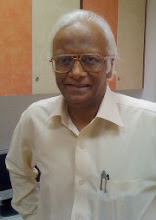GEORGE WASHINGTON’S SILENCE
SUNNY
THOMAS
Short of demanding a
statue for himself in the Army Headquarters, so that posterity in search of
inspiration can come beneath it and salute him, the general did everything to
extol himself. Yet the Supreme Court did not recognize the flame of his eternal
youth; and the defence ministry thought he was not so indispensable; and, worst
of all, parliament did not rise to a man in giving him a standing ovation which
he surely deserved.
His critics say If honour
was his primary concern, he would have resigned the day the Supreme Court gave
the verdict on his date of birth, but he did not. If probity was his primary
concern, he would have got the man who offered him the bribe arrested, ordered
an enquiry, and blacklisted the firm, which he did not, suggesting he was
willing to go along with the system which we all know is corrupt. If national
security was his primary concern, why wait till the fag end of his tenure? He
should have written the letter that he wrote to the PM in the first week of his
assuming the office.
President Harry Truman
sacked General McArthur, the hero of the Second World War, for reporting late
at the Oval Office. The American Senators did not raise a hue and cry, nor the
nation outraged. The President meant business and the Armed Forces got the
message. Truman was also the President who ordered the bombing of Hiroshima and
Nagasaki, because the Japanese won’t surrender (which was the most disgraceful
thing for Japanese to do) and the casualties went on mounting on both sides.
There was one more reason for dropping the atom bomb: it was just made and not
tested, and war was the best time to test it! And the rest is history.
George Washington’s
silence was far more eloquent than all the speeches made at the Philadelphia
Conference, wrote his biographer. The dignity and decorum with which our own
Rahul Dravid retired and made his farewell speech at Mumbai should set stands
for our generals, parliamentarians and bureaucrats. The Greatest After the
Berlin Wall, Rahul Dravid has a beautiful mind, which empowered him to do
everything he did with a touch of Greco-Roman style! He is eloquence and
dignity personified with or without his bat.
Cheap behaviour from the
occupant of an exalted office lowers the dignity and prestige of not only his
office but also the institution he represents. If decision making has become
synonymous with indecision making, that’s how the ministry of Defence responded
in its murky hour. But the beauty of Indian democracy is that the members of
Parliament, notorious for their unruly, irrepressible, even irresponsible
behavior, showed exemplary conduct while the issue was debated.
But it must be said in
fairness to the General that he found support from retired men in uniform,
which means everything is not all right at the top brass of the Armed Forces. The
synchronization of the three forces at the apex level needs review and
restructuring so that one chief does not step into the toes of the other two.
It is known to everyone
that defence procurement and election funding are inextricably linked, with
middle men and middle-middle men and middle-middle-middle men making hay while
the `son’ shines! All parties that have tasted power know the nitty-gritty’s
that outsiders will never understand. Men like George Fernandez were seasoned
politicians and masters of the craft while novices like Rajiv Gandhi got stuck
and did not know how to come out. The young visionary who introduced computer
brain power that took India to new frontiers and the leader who envisioned
economic liberalization which his successors implemented is today remembered
for the wrong reason, the right ones erased from the memory.
The problem with defence
procurement is that transparency is not always possible. The level of technical
competence needed is pretty high that even experts might find it difficult to arrive
at the right decision. Throwing open such matters to the public would mean
emotions and ideologies taking precedence over competencies – not to speak of
demagogues conducting street shows in favour of their brand. Expert matters
should be left to experts while some political scrutiny should be done by MPs
rising above party lines.
Nuclear deterrence is the
key to future wars, and stockpiling conventional weapons beyond a point is
wasting precious national resources. Which does not mean we should be caught
awkwardly. Substandard ammunitions not reaching even half the target is often
the buried truth. Greed and defence do make bad bedfellows.
Should our Generals be
encouraged to meet the press every week and give interviews as many times a
month as they wish? Should Air Force chief and Naval chief be encouraged to do
the same? Television channels would surely love it! But shouldn’t there be a
code of conduct for Generals and the Chief of staff? India Today’s cover
stories (Self Before Service, and General Singh’s War on India) indeed display
a rare political insight. Just come to think of it, Field Marshals S H F J Manekshaw
and K N Cariappa and Gen Thimayya and Gen J N Choudhuri have sat on the same
seat belittled by Singh!



No comments:
Post a Comment